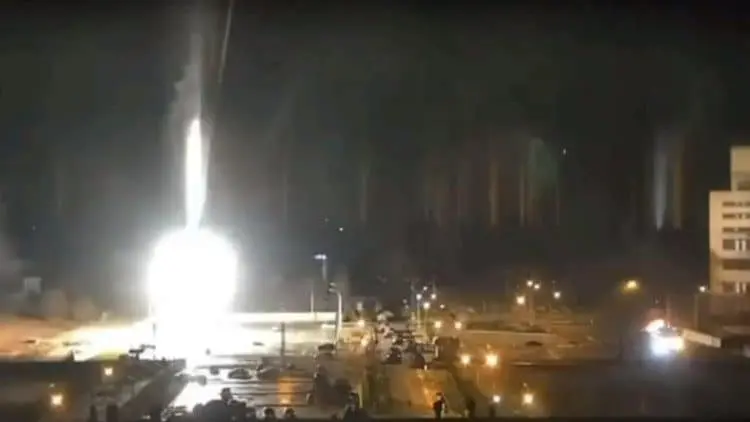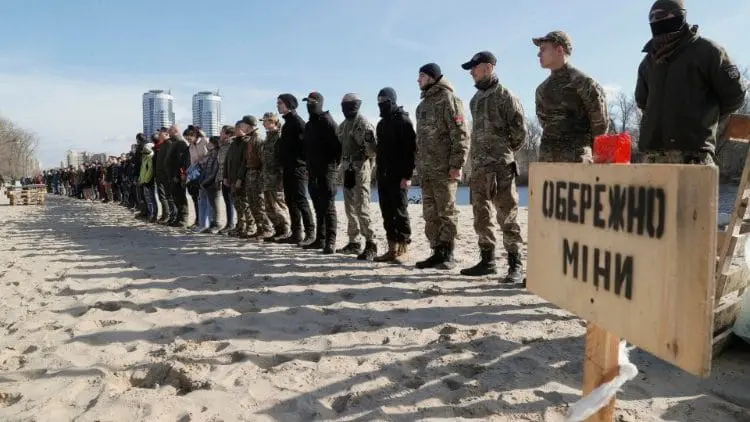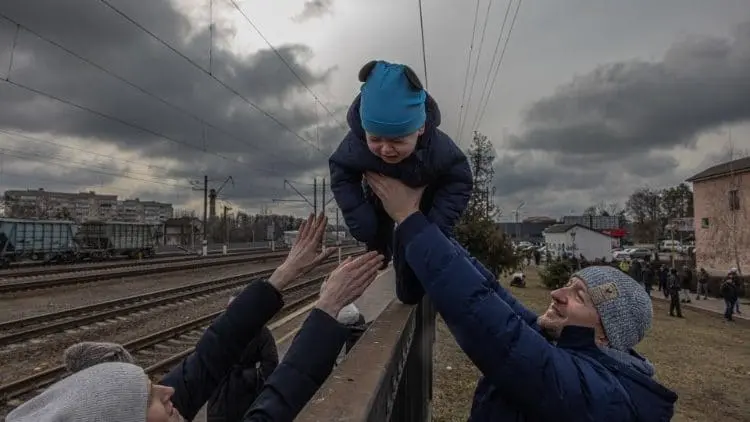By Linda Bordoni
Tetiana Ogarkova is a journalist at the international section of the Ukrainian Crisis Media Center.
After the first week of war in the capital Kyiv, she decided to take her children and elderly parents to their hometown in the west of the country in search of safety. She continues, however, to tell the story and to facilitate the work of international journalists in the besieged nation.
Day 9 of the Russian invasion, she says, has brought further death, destruction, and fear, fuelled also by the potentially terrible and far-reaching consequences of a nuclear catastrophe.
Her warning comes in the wake of the shelling, during the night, of Ukraine’s Zaporizhzhia nuclear power station, Europe’s largest nuclear plant, which is now in Russian hands.
Ogarkova also explains that the war is in a new phase with the Russian troops using different tactics after having faced such resistance on the part of the Ukrainian soldiers.
The Russian plan, Ogarkova says, was to capture the capital in two or three days, but their attacks were unsuccessful because the Russian army met with significant resilience on the part of the Ukrainian army.
Civilian targets
“What we see now is that they are aiming at civilians; today they bombarded a school in Zhytomyr, a normal school that is not at all a military object,” and she explains that houses and other sites that have no link whatsoever to military structures are being targeted.
This, she says, is aimed at creating panic and confusion and, on the ground, it is being perceived more as “terroristic activity” than as war.
A nuclear attack would have no borders
She goes on to speak of the shelling, during the night, of the Zaporizhzhia nuclear power station, which is now under Russian control.
“This is extremely, extremely dangerous. Because if there is an explosion it will be much bigger than the Chernobyl disaster, which was one of the hugest nuclear disasters in Europe in the last century,” she says, adding that “it would be six times stronger than the Chernobyl explosion.”
This station is now controlled by the Russian army and the priority right now is to involve everyone, at an international level, to change this situation.
Ogarkova launches her own appeal to the international community to do everything possible “to protect Ukrainian skyspace against missiles, rockets, Russian airplanes.”
It’s not just a local issue
She reiterates that Ukrainians understand the complexity of the issue, and the consequences of international involvement in this sense: “for the United States it would mean they are at war with Russia.”
Ogarkova expresses her opinion that although the West is continuing to avoid a clash with the Russian Federation, that clash is ultimately “unavoidable,” because she says, “they will destroy Ukraine first, but nuclear danger has no borders.”
“It will be a problem for everyone in Europe, so let’s do everything we can together to stop this nightmare,” she says.
Lack of food, medicines, basic necessities on the rise
Ogarkova says that in the west of the country, at the moment there is no lack of basic necessities. But in key cities and in the south, and in all places that are surrounded by Russian troops, there is a shortage of everything.
“It is becoming dramatic. In Kyiv there were huge lines at the pharmacies” with people waiting for hours for a simple medicine, she says, and the situation is expected to get worse in this respect.
The people are exhausted
Ogarkova says that as well as fear running through the population, people are increasingly tired.
“A lot of us are exhausted because we have spent all this time without any rest. It is impossible to sleep quietly, even in the western part of the country because of the air alerts,” she says, noting that even where she is sirens are sounded during the night and in the early morning.
Huge solidarity networks
At the same time, she says, “we see a huge mobilization and huge networks of solidarity,” with people helping others to evacuate and the establishment of a territorial defense system with all sorts of people taking up arms to defend their country.
She also says there are checkpoints in every city and village, with people controlling documents and cars to make sure there are no Russian infiltrators.
This is kind of extreme mobilization of the population but also a moment of great fatigue, Ogarkova says, and Ukrainians from all walks of life are asking for international support, “especially in terms of air protection, which is extremely important to provide secure skies for Ukraine.”
“The Russian army is shelling cities,” she concludes, “and this will lead us to a humanitarian catastrophe, without any doubt.”








